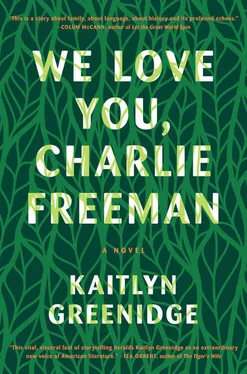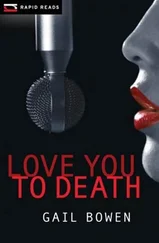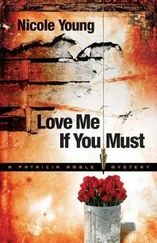“You should learn to use that word,” I told Dr. Gardner. “It makes everything sound official.”
He laughed at that and said he might.
The weak-tea-colored man sat each one of us Infant Stars in a velvet chair and he took a close portrait, a three-quarter length, and then a full. And then he packed up his camera and was gone, off to the rest of the world.
The pictures returned to us three years later, in a red leather album. The front said in gold letters THE PARIS EXHIBITION, 1900. There were pictures from Georgia, from North Carolina, from all over the South. From Chicago and the Plains: all the notable Negroes of America, divided up and cataloged by region. We were in the Northern section. All of us Stars, and me myself, haloed in my solo portrait, we were all there as a grand representation of the glory and the flower of the Negro race. I wasn’t named, but underneath my image Dr. Du Bois had placed the label “A stellar example of Northern Negro Lineage.”
“I was a beautiful girl,” I told Dr. Gardner, unembarrassed, and he had the good manners to not look shocked. When I was an Infant Star, there was no comparison. I really was beautiful enough to be included on a list of Negro Greats. It hasn’t carried over into adulthood. My full cheeks have grown heavy and my eyes that were large and inviting as a girl now are just goggled and popped, their whites all bleary and yellow. My young skin was shiny and smooth but as soon as I entered adolescence it began to spot, and when my parents died, all the light went out of it completely. Now I’ve got a conspicuously dying front tooth, a distinct shade of gray, impossible to hide. I am not beautiful and I am sarcastic and I believe I am better than most in this town and that is why I am a thirty-six-year-old orphan with no husband and why no man in Spring City has ever even held my hand. The fact that my star name is Nymphadora has become a kind of perverse joke. The other women say it now with a lilt that betrays their amusement and it pricks my skin every time they do.
Of course, Mumma was very proud of my inclusion in Dr. Du Bois’s work, but Pop was horrified. He never liked to brag. He was just as powerful in the Saturnites as Mumma was in the Stars. The Saturnites are the Stars’ brother organization. But you would never know how powerful Pop was to talk to him, and he only wielded his influence occasionally. When he saw the album page, at my image printed all alone and burnished with drawn-on curlicues he said, “Nothing good can come of this.”
And he was right. All the other Stars, and even a few Saturnites, were furious and accused Mumma of favoritism, of telling Dr. Du Bois to give me a special place. But Mumma said the Stars were just jealous, that Dr. Du Bois recognized good breeding when he saw it. I guess you could say that picture was the start of my parents’ downfall. Mumma, poor Mumma, was convinced I would grow into an even greater beauty and in anticipation of my imminent flowering, she began to buy me finer clothes and nicer hats and even a piano. And the waste of this is even more shocking because the girl in that photograph no longer exists. I am not a beauty anymore and certainly not a testament to the Negro race.
But as a child, I was just excited that a bunch of Parisians had seen my photograph. We were reading A Tale of Two Cities in school, and so I imagined some descendant of the unfortunate Dauphin, some secret French prince, seeing my photograph in the Paris Exhibition and falling in love with me and searching throughout Massachusetts for me and finding me and marrying me and making me a Northern Negro princess.
“It was the greatest regret of my childhood that that didn’t happen,” I said.
And for a third time, Dr. Gardner surprised me. He genuinely laughed, not in disbelief like most white people would, but in appreciation of the joke.
Since my parents killed themselves, I don’t count myself astonished by many things or many people. Dr. Gardner was my first surprise in a long time, and because of that, I felt a flash of affection for him.
Dr. Gardner sensed it and seized on it, pressed me further. “Let me sketch the children. Shouldn’t they have a dream like that? My drawings won’t end up in front of any Parisians, but they will make your students feel, for a moment, wholly unique and special and looked at .”
And he really did read me well because those were the exact words that would get me to say yes. I told him he could do it if he would agree to stop lurking around with his notebook, and he pretended to be offended by this, but he smiled, too, showed me the little gray pebbles of his teeth and I decided he was relatively harmless.
He sketched my students first in a group and then as they played, and really, they weren’t as uneasy as I’d pretended they were. And I told Nadine Morton to humor him, and he would leave after that, so she persuaded the other Stars to let their children participate.
But the problem was that he kept coming back. Dr. Gardner was never satisfied with one sketch. He returned week after week, interrupting my class and, worst of all, recess. That was my one free hour of the day, when I took an old Police Gazette to the back of the classroom and read stories of murder in peace while discreetly sipping sherry out of a porcelain teacup.
It was odd. After my parents killed themselves, I developed a passion for crime stories, the bloodier the better. Pop used to keep a copy of the Police Gazette curled and hidden behind the till in our general store. Mumma hated it, called it vulgar, but it was the forbidden talisman of my childhood, glimpsed only occasionally, before it was snatched from my hands. Now that they were dead, I realized there was no one to stop me from reading the Police Gazette if I so chose.
If I am being honest, I like the girls in the Police Gazette the best. Murder is interesting, but I save my copies so that I can study the girls again and again. The ones with the curls piled on their heads and the fat thighs crossed or tossed across the backs of divans. The ones with the cinched-in waists. The cover girls I like the best, not the girls on the inside pages. I like the way they hold their arms curved over their heads, and their backs arch. It makes their large bosoms rise up, this is certain, but I like it, too, because they are so vulnerable, so open. The very beating hearts of themselves are wide open to the world if the world would have them, if the world would only be clever enough to sift below the heavy, fleshy white rolls of décolletages.
Sometimes, if I’ve drunk too much sherry, if the day outside is cold and gray, I set down my teacup and fold up the paper and throw my own arms back like that, dangle them over the back of my little wooden school desk chair and toss my feet up on the scarred desktop, cross my own scant thighs. As I totter on my narrow seat and try to keep my balance, I know I am not nearly so reckless, so open, so brave as those women in the Police Gazette . I reckon I resemble more a hoary, staid starfish, showing my prickled and shellacked underside to the world, waiting to be poked so that I can curl all my arms back in defense and hide my tender underside again. I chalk it up to another luxury only white women have: to be that open and vulnerable to the world. If Mumma could see me, she’d slap me hot and fast for ever comparing myself, my good and beautiful and dutiful and clean Negro self, to white flesh. And she would be right and she would be wrong. Because I do not wish my own skin was white. What I envy is not their skin but their insouciance. I envy the freedom to sin with only a little bit of consequence, to commit one selfish act and not have it mean the downfall of my entire people. Where indecency and mischief do not mean annihilation. I envy that their capacity for love is already assumed, not set aside or presumed missing, like it is for us Negro women. That’s what I wish that I had from those pictures.
Читать дальше










![Ally Carter - [Gallagher Girls 01] I'd Tell You I Love You But Then I'd Have to Kill You](/books/262179/ally-carter-gallagher-girls-01-i-d-tell-you-i-lo-thumb.webp)

